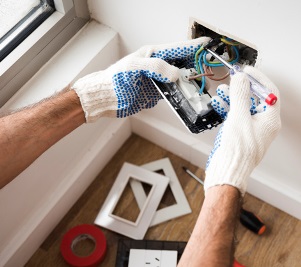Questions to Ask Trade Schools
 When you have selected the trade and type of certificate or degree that you wish to acquire, either online or on campus, you can begin to narrow down your selection of schools. As you are no doubt aware, there are many technical schools in Maryland and all over the United States to select from. That's why it is imperative to have a list of relevant qualifications when making school evaluations. As formerly stated in our opening paragraph, location and tuition will most likely be the initial two variables you will look at. Following are some additional ones that you will want to explore before enrolling in your school of choice.
When you have selected the trade and type of certificate or degree that you wish to acquire, either online or on campus, you can begin to narrow down your selection of schools. As you are no doubt aware, there are many technical schools in Maryland and all over the United States to select from. That's why it is imperative to have a list of relevant qualifications when making school evaluations. As formerly stated in our opening paragraph, location and tuition will most likely be the initial two variables you will look at. Following are some additional ones that you will want to explore before enrolling in your school of choice.
Accreditation. Numerous Maryland vocational programs have received either a regional or a national accreditation. They can receive Institutional Accreditation, which involves the school's programs overall, or Programmatic Accreditation, which relates to an individual program, for instance HVAC technology. Verify that the program is accredited by a U.S. Department of Education acknowledged accrediting agency, which includes the Accreditation Board for Engineering and Technology. Along with helping guarantee that you receive an excellent education, it can help in obtaining financial assistance or student loans, which are often not available for non-accredited programs. Additionally, a number of states require that the training course be accredited in order to be approved for licensing where applicable.
How Long in Business? One indicator to help determine the quality of a vocational school in Maryland is how long it has been in business. A negatively reviewed or a fly by night school normally will not be in business very long, so longevity is a big plus. However, even the top schools had to begin from their opening day of training, so use it as one of several qualifications.
Completion Rates. Ask the tech schools you are looking at what their completion rates are. The completion rate is the percentage of students who enroll in and complete the course. A low completion rate might signify that students were disappointed with the program and dropped out. It might also indicate that the instructors were not qualified to instruct the students. It's similarly important that the schools have high job placement rates. Older and/or more reputable schools may have a more extensive list of graduates, which may result in more contacts for the school to use for their apprenticeship and job placement programs. A high job placement rate will not only validate that the school has an excellent reputation within the industry, but additionally that it has the network of contacts to help graduates acquire apprenticeships or jobs in Maryland.
Apprenticeship Programs. Numerous vocational programs are taught along with an apprenticeship or an internship program. Those participating vocational and technical programs will help place you in an apprenticeship program inside their network of contractors or labor unions. Ask if the schools you are considering have working relationships with Maryland contractors in the trade. An apprenticeship not only provides a valuable experience by supplying practical training, but it also furnishes job opportunities and helps to establish relationships in the Maryland area professional community.
Modern Facilities. Make sure that the campus facilities and the tools that you will be instructed on are state-of-the-art and what you will be using on the job. If you are already in an internship or an apprenticeship, talk to the technician you are working with concerning what you should be looking for. Otherwise, ask a local Maryland company if they can give you some tips. Additionally bear in mind that unless you are willing to move, the school must be within driving distance of your home. Take note that if you decide to enroll in an out-of-state school, besides the added moving costs there might be higher tuition charges compared to in-state residents.
Smaller Classes. It's important that you get as much personalized instruction as possible, which can be challenging in larger classes. Ask if you can sit in on a couple of the classes so that you can observe how large they are and experience the interaction between students and teachers. Speak to a few of the students and get their opinions concerning class sizes and instruction. Finally, speak with a few of the teachers and learn what their level of experience is in Maryland and what certifications or degrees they hold.
Flexible Scheduling. Verify that the class schedules for the programs you are assessing are flexible enough to handle your needs. If you are only able to go to classes in the evening or on weekends in Maryland, check that the schools you are considering offer those choices. If you can only attend on a part-time basis, make certain that the school you select offers part-time enrollment. Finally, check out what the protocol is to make-up classes should you miss any due to work, illness or family emergencies.
Find Out How to Choose a Skilled Trade School in Maryland
